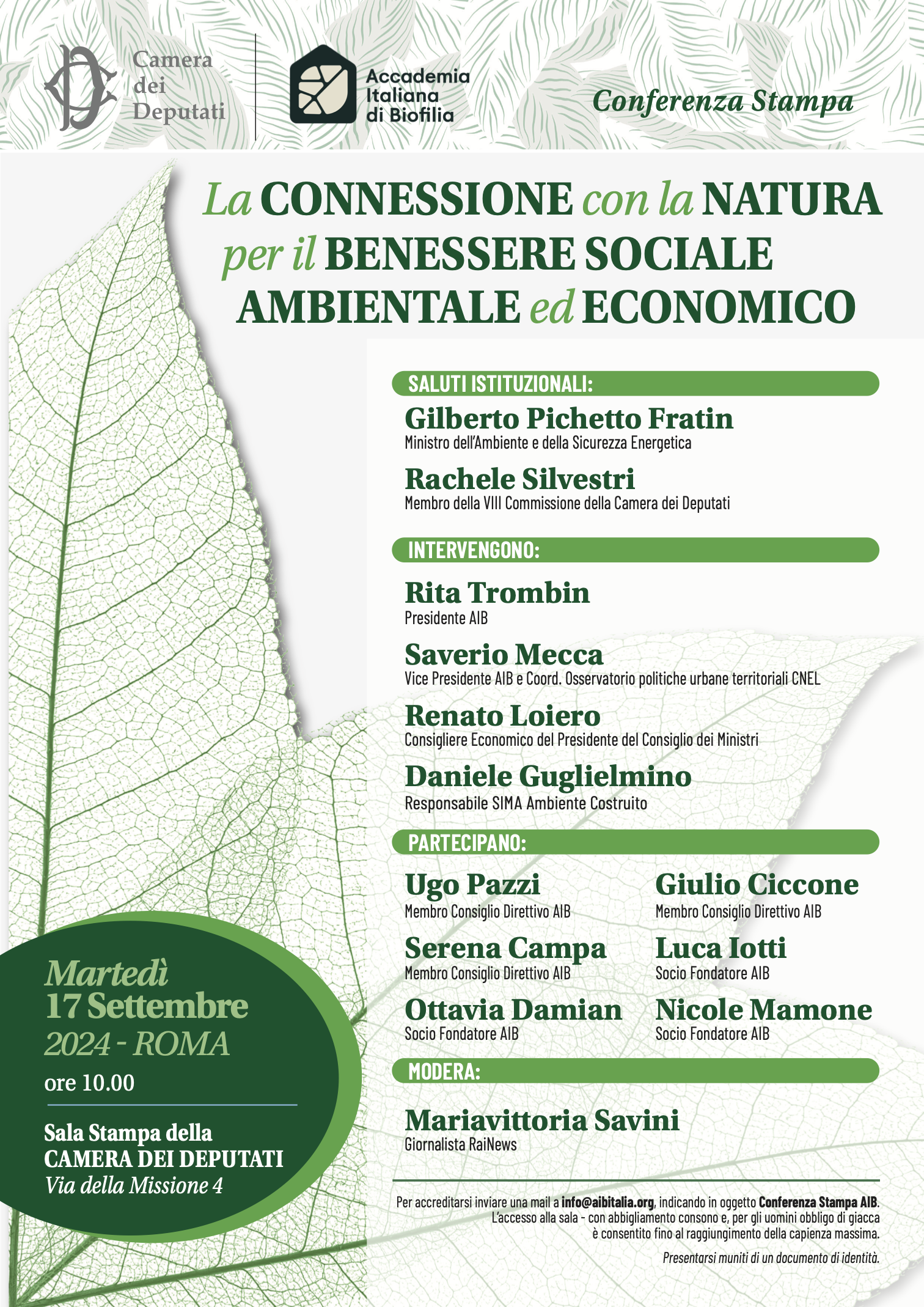Curated by the Italian Academy of Biophilia (AIB)
Introduction
The Italian Academy of Biophilia (AIB) held a press conference at the Chamber of Deputies to present the first data from an analysis conducted on the connection with nature and social, environmental and economic wellbeing. The event was attended by institutional figures, scientific experts, and representatives of the Real Estate sector, focusing on the importance of Biophilia, Biophilic Design, and indoor wellness in urban and confined spaces.
Background and Objectives
In an increasingly urbanized world, the conference addressed the growing disconnection from nature and its impact on human well-being. AIB presented data showing how integrating nature into built spaces can improve mental and physical well-being, productivity and the economy. The goals of the event were to highlight the benefits of connecting with nature in work, educational, commercial, and healthcare environments; to present scientific data on the impacts of indoor living on quality of life; and to promote the importance of biophilic design solutions to improve quality of life in cities.
Implementation and Development
The conference featured several keynote speeches, including the presentation of AIB's mission in promoting Biophilia. Data were presented showing that Italians spend more than 22 hours a day in indoor spaces, with significant impacts on well-being. The benefits of Biophilic Design were discussed, including improved work performance (+25%), faster learning in schools (+26%), increased sales in stores (+20%), and reduced healing times in hospitals (-18%). Strategies to integrate natural elements into urban and work spaces have also been proposed.
Results and Impact
The event received extensive media coverage from more than 40 media outlets, including Rai, TG5 Mediaset, Il Sole 24 Ore, ANSA, and Fortune Italia, underscoring the importance of Biophilia for daily well-being.
Conclusions and Future Perspectives
The event opened a reflection on the challenges of indoor living by providing concrete examples of biophilic design. AIB will continue the study and will continue to promote initiatives for healthier and more sustainable environments by spreading Biophilia in urban settings.

